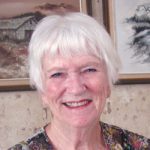|
LAKESIDE LIVING
August 2013 |
||
|
PAST EVENTS
Lake Chapala Society (LCS) – Can-Am Annual Celebration On July 2, 500 Canadians & Americans celebrated their Independence along with members of the Mexican community. The annual Can-Am sponsored by LCS proved to be an international picnic with the flags of the three nations prominently displayed. Two Latin groups, Recuerdos de Mi Mexico and the Ajijic Trio played throughout the LCS grounds and the Jam Band (comprised of musicans from all three countries) took over on the stage with a mix of Blues, Country and Rock & Roll. Twenty-four Non-profit organizations displayed their wares, signed up new volunteers and sold tickets to their fund-raisers.
 Joanne & Jim Stuart at LCS Can-Am Day picnic
Tony’s Restaurant had ticket holders lined up for hamburgers, hot dogs and all the fixings while Tom’s Bar provided the chili and LCS director Terry Vidal cooked up his “corn on the cob on a stick”. Premium tequila was a taste treat offered during the day by Sandy & Daniel. A group of seven-year-old local students from Escuela Primaria Francisco Marquez charmed the audience with their singing. Lakeside’s Delegado Hector Espana along with Yvonne Chin, Canadian Consul and Chapala May Joaquin Huerta were all on hand to encourage the audience to enjoy and appreciate their independence. The 50-50 draw raffle prize of $5,000 pesos was won by the Bar volunteer Bill O’Brien. Barbara Clippinger and Mac Morison were married in Southern California with family and friends in attendance, followed by a month’s honeymoon in Europe. The couple wanted to redo their vows with friends here in Mexico, and so another celebration took place in Ajijic on July 13th at the home of Pattye Simpson and Russell Mack. Although Barbara and Mac have known each other 15 years and worked together on many shows, something magical happened during “A Taste of Tin Pan Alley” last winter. “We feel so extraordinarily lucky to have found each other in these twilight years, and walking through the village so many people say to us, ‘You’ve given us hope’. It’s a great feeling.”
 Congratulations to Barbara Clippinger & Mac Morison
Recently released is a new book by Bill Dean. It is available through Amazon.com in soft cover for $17 USD or you can look through the table of contents at www.mexicojourney.info/. The contents cover a great deal of information for 161 pages but it is an impressive coverage of material, including some on Lakeside. For more information, contact bdeanmexico@yahoo.com.
 History/Culture of Mexico
On July 28, Libby Townsend held a Raindance at Ocampo 98-2 six corners, Ajijic, to send rain to the Copper Canyon for the Tarahumara crops. It worked last year and there was plenty of July rain Lakeside this year so it was worth a try. Suggested donations $100 pesos, snacks and drinks served. Tarahumara Hand crafts were for sale, all proceeds to the Tarahumara Project to support The Free Tarahumara Children’s hospital. It’s not too late. You can still find Libby at the Guadalajara Reporter Office in Plaza Bugambilias or call 766 – 1167 or 766 – 3338 to make donations.
COMING EVENTS: August 23, 24, 25 Naked Stage offers the reading After-Play by Anne Meara, directed by Bob Jones. The first play written by legendary comedienne Anne Meara, the breezy, funny After-Play concerns two middle-aged couples who are old friends reuniting after three years by dining together in Manhattan following a night at the theater. Meara is perhaps best known for her work with husband Jerry Stiller in the comedy duo Stiller and Meara. The thrust and parry of two long-separated showbiz couples during an after-theater dinner reflects the polish and the predictability of an actor writing for actors: within seconds of their arrival at a trendy New York restaurant, the characters’ gloves come off and the venom is flying, and it almost never lets up despite the protestations of mutual love heard at regular intervals.
 After-Play set (see it at the Naked Stage)
For reservations email nakedstagereservations@gmail.com or call Michelle Boudreau at 765-6408. Naked Stage presents minimalistic play readings for adult theatre lovers at 4 p.m., donation $80 pesos. Bar opens at 3 p.m., box office at 3:15 p.m. Prior to or after the Reading, Daniel’s is open for lunch and dinner. After the Readings, the manager Daniel is offering 2 x 1 Dinners and 2 x 1 Margaritas. The Naked Stage is located in Plaza de la Ribera (Formerly Sol y Luna). Drive West on the Carretera from Central Ajijic. Turn South on Rio Bravo. The theatre is behind the Don Pedro Restaurant two blocks down on the left. Meals will be served. November 15 – 17 the Feria Maestros del Arte, the annual fair for Mexican art, will be held at the Chapala Yacht Club. If you can be in Mexico City October 19, the annual parade will kick off the feria season, emphasizing that spectacular art begins with individual artists. In this year’s parade there will be an alebrije (papier-mâché) sculpture that represents the Goddess of Lake Chapala, called Michicihualli. This early rendering was made by Alejandro Camacho Barrera’s team of artists from Tonala (SE suburb of Guadalajara). The artists were recently awarded by Presidente Enrique Peña Ñieto.
 Goddess of Lake Chapala
Mulitple Events:
 Legion Shrimp Boil – all you can eat!
The American Legion post #7 schedule: Saturdays: 3:30 – 6:30 p.m. Fish Fry Sundays: Burgers & Dogs 12 – 3 p.m. Aug 2 9 a.m. – Legion Bazaar Aug 11 12 – 3 p.m. Faux or No “Antique” Road Show (call for details) Aug 22 5 p.m. drinks, 6 p.m. Jimmy Buffet shrimp boil $170 pesos Tickets at the Legion, advance sales only, #114 Morelos at Guerrero, Chapala or call Victoria by cell (045) 333 – 598 – 5843 or at Legion 765 – 2259. Lakeside Little Theatre: August 6 – 7, the LLT is holding a Sound Operator’s Workshop conducted by Karen Lee from 10 – 1 each of the two days. If you are interested, registration will begin at 9:30 a.m. on August 6. The meeting will be held in the lobby of the LLT. The workshop is specifically for recruiting and training sound operators and is open to anyone interested in learning theatrical sound techniques and equipment. Directors, stage managers, and other production people are also encouraged to attend in order to learn how to work with sound technicians on their productions.
 Sample Theatrical Sound System
VIVA La Musica: This is the 2013 Summer Sunday concert series at St. Andrew’s Church, Riberas del Pilar. A cash bar will serve champagne during intermission. Come and join in! $200 members, $300 general, free for music students with ID, $100 for students. Tickets are available at LCS, 10 – 12 or at Diane Pearl’s. Aug 18, 4 p.m Issac Ramirez Cello & Andres Sarre Piano: Toussaint, Bloch, de Falla, Faure and Piazzola Sep 15, 4 p.m. Nury Ulate & David Mosqueda Prelude Flute and Guitar: Solo Guitar Bach, Ponce and Turini, Flute and Guitar Back Oliva & Pujol Buenas Aires Suite Oct 13, 4 p.m. Quartet Tania Touby Piano, Konstantin Zumbilov Violin, Robert Nelson Viola and Yalissa Cruz Cello playing Mozart and Brahms Piano Quartets This time VIVA La Musica presents two musicians: Andres Sarre on piano and Issac Ramirez playing cello. They have formed a duo since 2005 and have participated in numerous competitions individually and together.
 Isaac Ramirez
Issac Ramirez has won numerous competitions and has performed as soloist with the Jalisco Filarmonica, and the chamber orchestra “Blas Galindo”. He is also involved in directing and producing Jalisco’s radio program “Retro Conexion” that popularizes classical music and is co-director of the educational Television program “Contratiempo”. Together with Andres Sarre he has won prizes at The Chamber Music Festival in Aguascalientes and the International Chamber Music Festival in San Miguel de Allende in 2007.
 Andre Sarre
Andres Sarre has participated in national competitions. He played with the Jose White Quartet, interpreting the Brahms quintet. During studies at the Conservatorio Superior in Madrid and Barcelona, Andres specialized in piano accompaniment for Spanish and Latino-American vocal music, following which he was awarded a grant from CONACULTA to study in Modena, Italy with Mirella Freni and Paola Molinari. Later he studied Italian opera in Bologna with some of the outstanding opera singers. He has produced a CD with soprano Lucia Preciado. All music lovers are invited to come and spend a lovely Sunday afternoon in the company of two young, talented Mexican musicians. Ever consider making the trip to visit the clusters of Monarch Butterflies that nest in Mexico throughout the winter months? Here are a few facts of interest: Monarch butterflies are known for the incredible mass migration that brings millions of them to California and Mexico each winter. North American monarchs are the only butterflies that make such a massive journey—up to 3,000 miles (4,828 kilometers). The insects must begin this journey each fall ahead of cold weather, which will kill them if they tarry too long. Monarch butterflies begin life as eggs and hatch as larvae that eat their eggshells and, subsequently, the milkweed plants on which they were placed. Monarchs are dependent on milkweed plants, which larvae eat nearly exclusively.
 Monarch Butterfly
Fattening larvae become juicy, colorful caterpillars, then create a hard protective case around themselves as they enter the pupa stage. They emerge as beautifully colored, black-orange-and-white adults. The colorful pattern makes monarchs easy to identify—and that’s the idea. The distinctive pattern warns predators that the insects are foul tasting and poisonous. Butterflies that emerge from chrysalides (pupa state) in late summer and early fall are different from those that do so during the longer days and warmer weather of summer. These monarchs are born to fly, and know because of the changing weather that they must prepare for their lengthy journey. Only monarchs born in late summer or early fall make the migration, and they make only one round trip. By the time next year’s winter migration begins, several summer generations will have lived and died and it will be last year’s migrators’ great grandchildren that make the trip. Yet somehow these new generations know the way, and follow the same routes their ancestors took—sometimes even returning to the same tree. Many scientists are concerned about the eastern population of monarchs, which summer east of the Rocky Mountains. This group is occurring in ever smaller numbers, and its survival may be threatened by a series of natural disasters in the Mexican wintering grounds, as well as by reduced acreage of milkweed plants in their summer home. Scorpions are members of the class Arachnida and are closely related to spiders, mites, and ticks. They are commonly thought of as desert dwellers, but they also live in Brazilian forests, British Columbia, North Carolina, and even the Himalayas. Need I mention Lakeside? These hardy, adaptable arthropods have been around for hundreds of millions of years, and they are nothing if not survivors.

Scorpions typically eat insects, but their diet vary—another key to their survival in many harsh locales. When food is scarce, the scorpion has an amazing ability to slow its metabolism to as little as one-third the typical rate for arthropods. This technique enables some species to use little oxygen and live on as little as a single insect per year. Yet even with lowered metabolism, the scorpion has the ability to spring quickly to the hunt when the opportunity presents itself—a gift that many hibernating species lack. Such survival skills allow scorpions to live in some of the planet’s toughest environments. Researchers have even frozen scorpions overnight, only to put them in the sun the next day, watch them thaw out and walk away. But there is one thing scorpions have a difficult time living without—soil. They are burrowing animals, so in areas of permafrost or heavy grasses, where loose soil is not available, scorpions may not be able to survive.
|
- April 2024 – Issue - March 31, 2024
- April 2024 – Articles - March 31, 2024
- April 2024 - March 31, 2024





